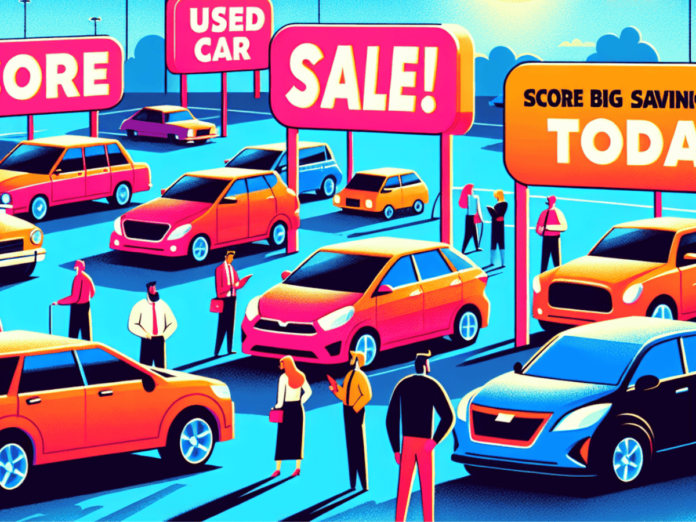Imagine driving a high-quality car at a fraction of its original price. Sounds like a dream, right? This dream can become your reality through the world of repossessed cars. Whether you’re a first-time buyer or a seasoned car enthusiast, understanding the ins and outs of buying repossessed cars for sale can save you significant money while offering you a vast selection of vehicles. In this guide, we’ll explore everything you need to know about finding and purchasing these hidden gems.
Table of Contents
What Are Repossessed Cars?
Repossessed cars are vehicles taken back by lenders after the owner defaults on their loan payments. These vehicles can come from banks, credit unions, or finance companies. When an owner fails to meet their financial obligations, lenders have the right to repossess the car and sell it to recoup their losses. This creates an opportunity for buyers to purchase relatively new and well-maintained vehicles at significantly reduced prices.
Why Are Repossessed Cars Sold Cheaply?
Repossessed cars for sale are generally sold cheaply because lenders aim to recover their losses quickly. They are not in the business of selling cars and prefer to liquidate these assets as soon as possible. This urgency to sell means that buyers can often find excellent deals on high-quality vehicles.
Benefits of Buying Repossessed Cars
Purchasing a repossessed car comes with several advantages. First, the cost savings can be substantial, allowing you to get more car for your money. Second, many repossessed cars are relatively new and in good condition, offering great value. Lastly, the buying process can be straightforward, especially if you know where to look and how to prepare.

Where to Find Repossessed Cars for Sale
There are several avenues to explore when searching for repossessed cars for sale. Each option has its benefits and considerations, so it’s essential to understand them to make an informed decision.
Bank and Credit Union Auctions
Banks and credit unions regularly hold auctions to repossessed cars for sale. These auctions can be a great place to find bargains, as the financial institutions are primarily interested in recovering their money quickly. Keep an eye on local listings and websites for auction dates and details.
Government Auctions
Government agencies also repossess and sell vehicles, often at public auctions. These auctions can include cars from various sources, including those seized due to unpaid taxes or other legal issues. Websites like GovDeals and GSA Auctions list these vehicles and provide information on upcoming auction events.
Online Repossession Marketplaces
Several websites specialize in listing repossessed cars for sale. Platforms like Auto Auction Mall, RepoFinder, and Copart provide comprehensive listings of available vehicles, complete with photos and detailed descriptions. These sites often allow you to bid on cars directly, making the process convenient and accessible.
What to Consider Before Buying
Before purchasing a repossessed car for sale, there are several critical factors to consider to ensure you get the best deal possible.
Vehicle History and Condition
Always check the vehicle’s history report to understand its background, including any accidents, repairs, or title issues. Additionally, inspect the car thoroughly or hire a professional mechanic to assess its condition. This step is crucial to avoid unexpected repairs and ensure the repossessed cars for sale is mechanically sound.
Financing and Payment Options
Determine your financing options before attending an auction or placing a bid. Some auctions may require immediate payment, while others offer financing plans. Understanding your budget and payment options will help you make a confident purchase without financial strain.
Auction and Buyer’s Fees
Be aware of any additional fees associated with the purchase. Auctions often charge a buyer’s fee, which can add to the overall cost of the vehicle. Factor these fees into your budget to avoid any surprises.
How to Prepare for Purchase
Preparation is key to successfully buying a repossessed car. Follow these steps to ensure you’re ready to make a smart purchase.
Research the Market
Start by researching the market to understand current prices for the type of car you’re interested in. This knowledge will help you identify a good deal and avoid overpaying. Use tools like Kelley Blue Book or Edmunds to check the average prices for specific models.
Attend Auctions with Confidence
If you’re planning to attend an auction, arrive early to inspect the vehicles and gather information. Bring a list of questions and a notebook to take notes. Being well-prepared will give you an edge over other bidders and increase your chances of securing a great deal.
Set a Budget and Stick to It
Determine your maximum budget before the auction and stick to it. It’s easy to get caught up in the excitement of bidding, but staying within your budget will prevent buyer’s remorse and financial stress. Remember to include any additional fees in your budget calculations.
The Bidding Process
Understanding the bidding process is essential for success at auctions. Here’s a step-by-step guide to help you navigate this exciting experience.
Register for the Auction
Most auctions require you to register in advance. This process typically involves providing identification and, in some cases, a deposit. Check the auction’s website or contact the organizers for specific registration requirements.
Place Your Bids Strategically
When the auction begins, pay close attention to the bidding increments and the auctioneer’s cues. Start with a lower bid and increase gradually. Avoid getting caught in bidding wars that can drive up the price. Stay calm and focused on your budget.
Winning the Bid
If you win the bid, congratulations! You’ll need to finalize the purchase by paying the required amount and completing any necessary paperwork. Ensure you understand the payment terms and deadlines to avoid complications.

Post-Purchase Steps
After purchasing a repossessed car, there are a few essential steps to take to ensure everything goes smoothly.
Transfer Ownership
Complete the necessary paperwork to transfer ownership of the vehicle into your name. This process varies by state, so check with your local Department of Motor Vehicles (DMV) for specific requirements.
Get Insurance
Before driving your new car, make sure it’s insured. Contact your insurance provider to add the vehicle to your policy and obtain the necessary coverage. Having insurance in place protects you and ensures legal compliance.
Perform Maintenance and Repairs
Even if the car appears to be in good condition, it’s wise to perform a thorough maintenance check. Address any minor issues and schedule regular maintenance to keep the vehicle running smoothly. This proactive approach can prevent costly repairs down the road.
Common Myths About Repossessed Cars
There are several myths and misconceptions about repossessed cars that can deter potential buyers. Let’s debunk some of the most common ones.
After buy Repossessed Cars, You can check How Much Does It Cost to Wrap a Car in 2024 Ultimate Guide .It give better look for your car.
Myth 1: Repossessed Cars Are Always in Poor Condition
While some repossessed cars may have issues, many are in excellent condition. These vehicles are often well-maintained and repossessed due to financial issues rather than neglect. Thorough inspections and vehicle history reports can help you find high-quality options.
Myth 2: The Buying Process Is Complicated
The purchasing process for repossessed cars can be straightforward, especially with the right preparation. By understanding the steps involved and knowing what to expect, you can navigate the process with confidence and ease.
Myth 3: Repossessed Cars Lack Warranty
Some repossessed cars may still have an active manufacturer’s warranty, providing added peace of mind. Additionally, many third-party companies offer extended warranties for used vehicles, including repossessed cars. Research your options to find the best coverage for your purchase.
Conclusion
Purchasing repossessed cars for sale can be a fantastic way to secure a high-quality vehicle at a reduced price. By understanding the process, doing your research, and preparing adequately, you can confidently find and buy a repossessed car that meets your needs and budget. Ready to start your search? Visit online marketplaces, attend local auctions, and explore the wealth of opportunities available in the world of repossessed cars. Happy hunting!
Frequently Asked Questions (FAQ)
What are repossessed cars?
Repossessed cars are vehicles that have been taken back by lenders or financial institutions due to missed payments or loan defaults by the original owners. These cars are often sold at auctions to recover the outstanding loan amounts.
Are repossessed cars cheaper than regular used cars?
Yes, repossessed cars are usually sold at a lower price compared to regular used cars. Since lenders aim to quickly recover their losses, they may offer these vehicles at competitive prices, making them an attractive option for budget-conscious buyers.
How can I find repossessed car auctions?
To find repossessed car auctions, you can start by checking local auction houses, financial institutions, or online listings. Many websites specialize in listing repossessed vehicles, providing detailed information about upcoming auctions and available cars.
Is it safe to buy a repossessed car?
Buying a repossessed car can be safe if you carefully inspect the vehicle and review its history report. Look for signs of maintenance, repairs, or major accidents. Conducting a thorough pre-purchase examination ensures you make a well-informed decision.
Do I need to pay cash for repossessed cars at auctions?
Payment terms for repossessed cars vary depending on the auction and the auctioneer’s policies. Some auctions require immediate cash payment, while others may offer financing options. It is crucial to understand the payment requirements before participating in an auction.


